A new report from the BBC says that if one was to subscribe to the range of media the BBC currently offers, instead of the current TV Licence fee model, then that subscription would end up costing £453/year (or £37/month).
This week, the BBC published a “Value for Audience” report, that looks at the various ways the corporation has been saving money and cutting costs, and what the BBC itself – and the licence fee used to fund it – are worth to the British public.
In light of the new report, the BBC Director-general also spoke about the suggested licence fee decriminalisation, and what will happen to BBC shows on Netflix (see ahead).
The TV Licence fee currently stands at £157.50/year. Anyone who watches the BBC live, or via the BBC iPlayer app, has to pay it.
Furthermore, if you watch any type of live TV from any broadcaster (even international ones), you also need to pay the fee (See our full guide on whether you need to pay the TV Licence fee or not).
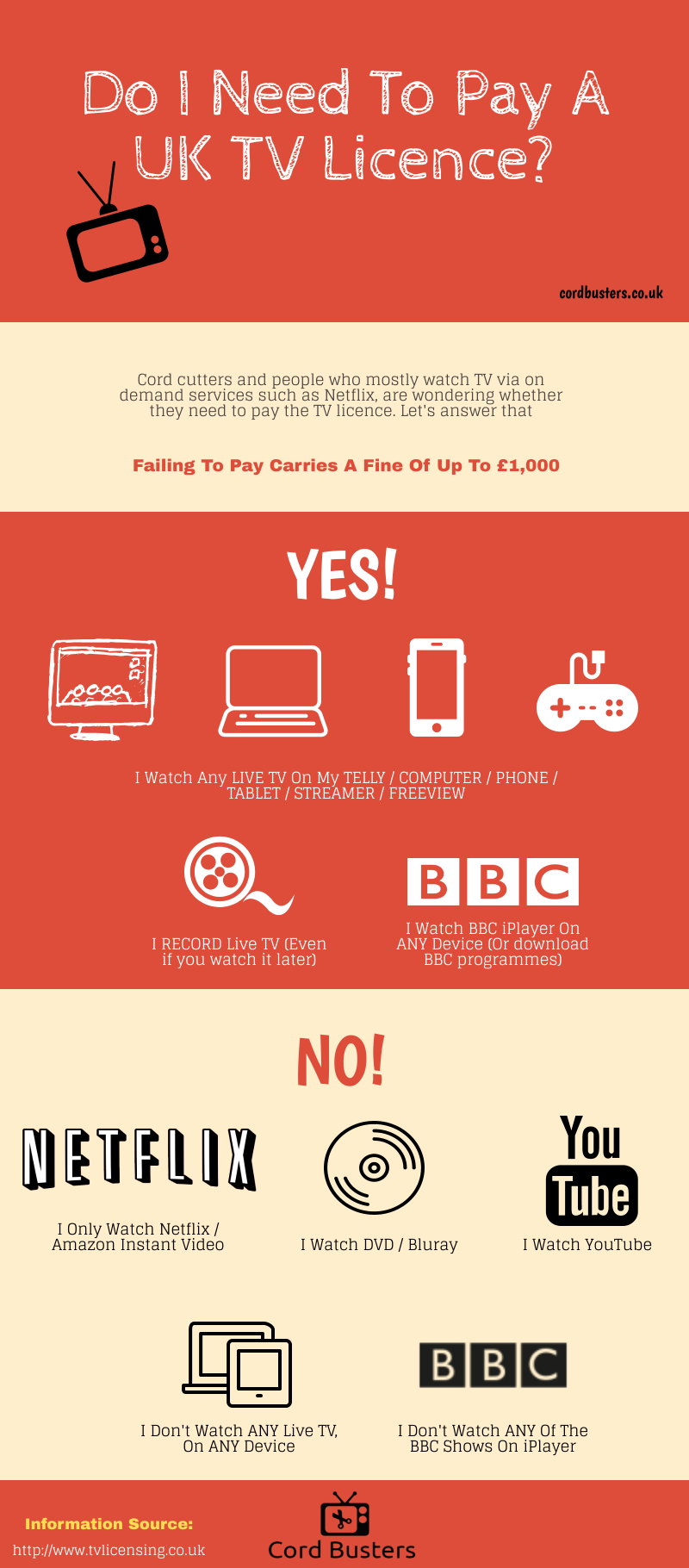
“The BBC is providing much more to audiences now, for less”, the new report mentions. “The licence fee costs less in real terms today, at £157.50 per year, than it did in 2010/11 when the cost was the equivalent of £178 in 2019/20 prices.”
However, at £13/month, the TV Licence fee is still higher than the cost of competing TV services, such as Netflix (£9.99/month for the standard plan) or Disney+ (Currently £5.99/month).
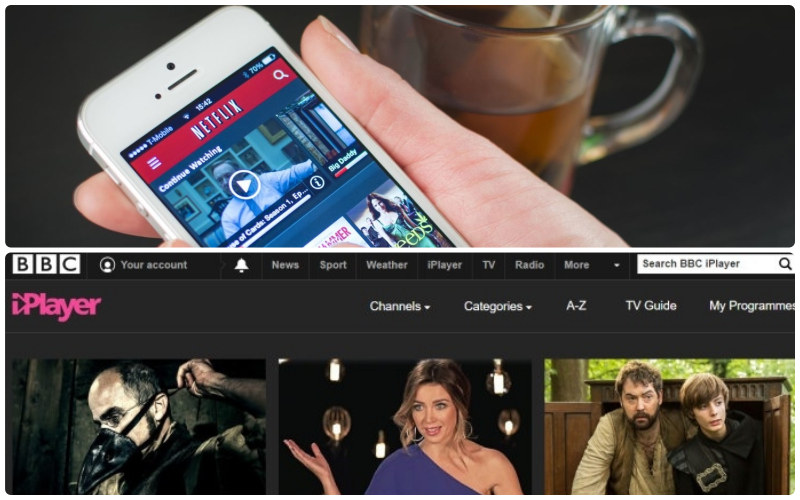
But with the ongoing discussions about possibly transforming the mandatory TV Licence fee into an optional subscription service, the report also looks at what the BBC offers (Television, radio and the news website), and how to translate that into monetary value.
“Compared with the market, the BBC continues to be very good value for money”, the report says. “Each hour of BBC TV watched by a household costs it around 9p, on average.
“For an equivalent subscription video-on-demand service that is around 15p, and for an equivalent pay-TV service it starts at well over 50p per hour. Radio also provides great value for money. Each hour of BBC radio listening costs each household about 3p, on average.
“If one was to purchase the range of media offered through the licence fee, then a bundle of subscriptions providing advertising-free high-quality services comparable with those delivered by BBC across video, audio and news would cost £453.45 per year in comparison with the current licence fee of £157.50.”
The report also compares the licence fee with other common leisure activities: “The price paid for the licence fee in 2020/21 is equivalent to the price of only five Premier League match tickets, three London theatre tickets, six zoo visits or 22 cinema tickets.”
Tim Davie, the current BBC director-general, has already spoken in the past against turning the BBC into a subscription-based service, saying that while they might make “a decent business out of it”, it would make the BBC “just another media company serving a specific group”, instead of serving wider groups of the population.
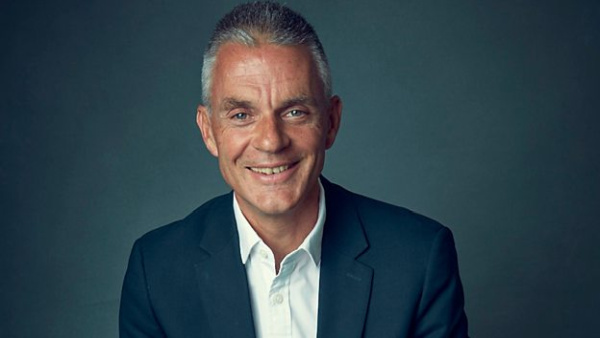
TV Licence Decriminalisation And BBC on Netflix
Following the publication of the Value for Audience report, Mr Davie also spoke with the Reform think-tank, where he addressed the hot-topic of TV licence fee decriminalisation.
As we reported last month, the government decided to leave the current criminal sanctions on evading the licence fee where they are, for at least two years, with evaders risking a £1,000 fine or, in rare cases, even going to jail.
Asked about his opinion on the matter, Mr Davie congratulated the government on its decision:
“Bravo. Logic prevailed, simple as that. It was a bad idea. It didn’t stack up. I’m very pleased.”
In his conversation with Reform, Mr Davie also addressed the issue of many BBC programmes (such as Line of Duty, Sherlock and others) ending up on Netflix – even in the UK.
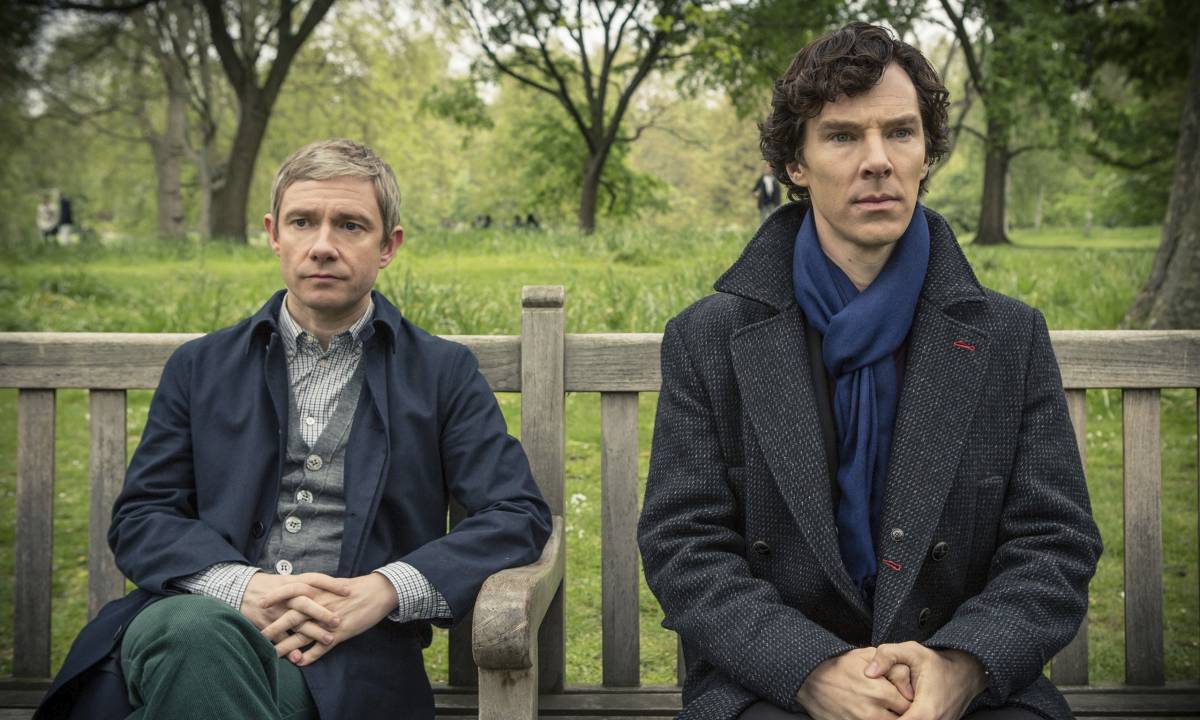
In fact, it was mentioned that some people don’t even bother going to BBC iPlayer to search for BBC content, and instead – wait for it to come up on Netflix.
“Some people say, why don’t you just put your content everywhere, it’ll be fine. It wouldn’t”, said Mr Davie.
And so according to him, fewer BBC programmes will end up on Netflix in the future. “That person waiting for a BBC show to come to Netflix will get increasingly disappointed.”
A possible sign of that was seen last month, when all the newer seasons of Doctor Who were removed from Netflix in the UK.
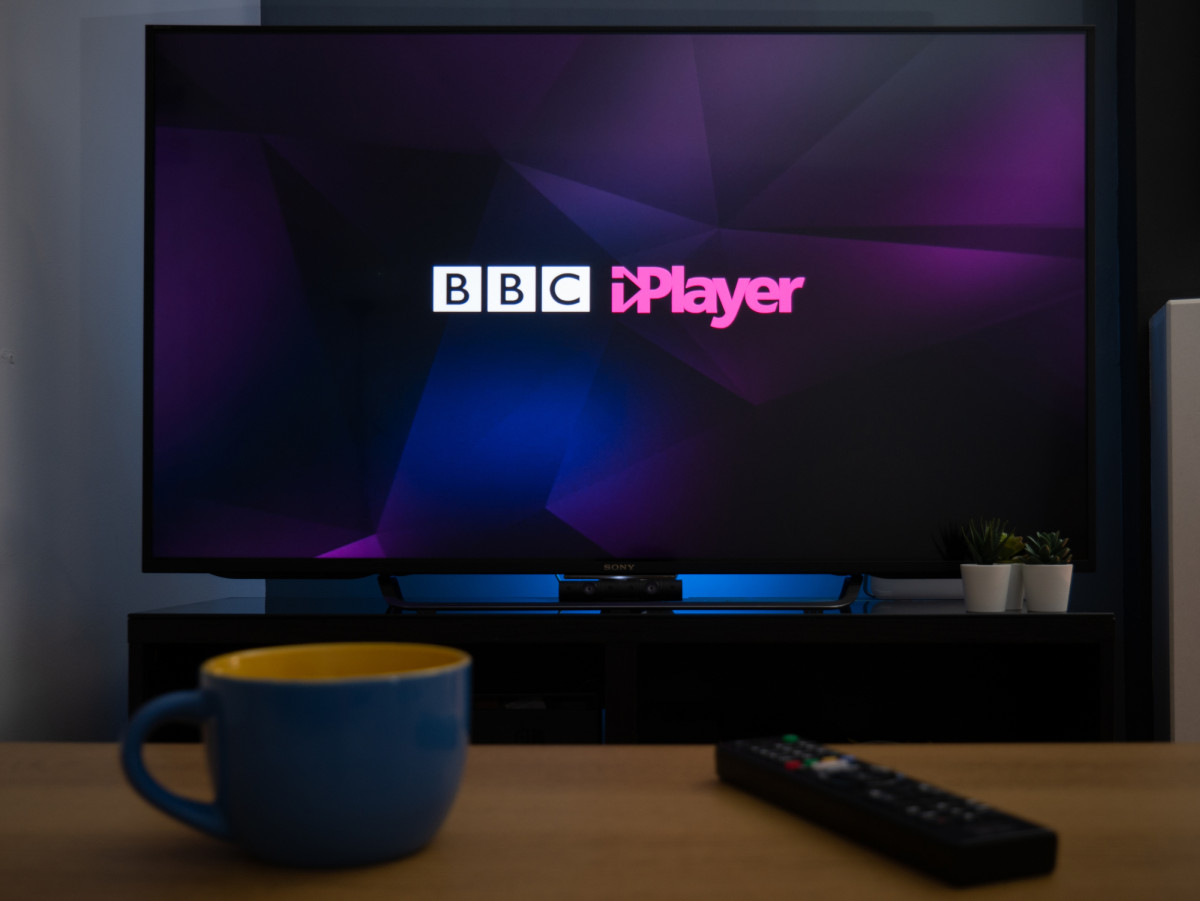
hi if bbc had an app like i player it gives ppl a choice as to if they want most wont at that price so bbc would disapear as they would be overpriced copared to competers so up to them its called freedom of choice like overpricing the licence to watch numerous repeats on the beeb same as sky both are as bad as each other
Hmm, big number bigger than little number, must be a bad idea. /sarcasm
The current licence system doesn’t serve me. I don’t watch live TV therefore I don’t buy a licence and support the BBC but I’d happily pay for radio, news, and Netflix style access to the back catalogue. There’s no way to tell them that’s what I want and certainly no way to back it up with my wallet so they just assume I’m not interested in all BBC services and keep pumping out junk live TV I’m not interested in, perpetuating the cycle.
BBC radio is worth the licence fee alone.
You don’t need a TV license for the radio….clearly says on TV license website.
True, but how is it funded?
Like every other radio station is funded. If they needed the money for their radio stations then surely the license would be required for the radio too. I doubt they have excluded it out of the goodness of their hearts, pretty sure that’s not how business works. Why would you pay for something that’s not even covering the service you are actually using. I bet a lot of the people that pay for the TV license have been scared into doing so because of the countless letters they send threatening fines or imprisonment, whilst leaving out what the license is actually needed for.
The BBC have always said how their income is used – that’s the point I was making. It funds the radio stations, online, and TV.
BBC Radio is not like every other radio station, that’s the whole point of it.
How about Us single person households? How can that be fair coverage for all.
We pay full fee when others can have 4 or 5 watching on different TVs. Time BBC took leaf from council tax to give discount to single occupants. Better still get rid of fee for all.
The BBC provides great value for money, where else do you get such a wide variety of broadcasting, TV, radio, all its web content and of course I player. It is the public broadcaster held in high regard all over the world much like the NHS is.
Which of all the other commercial TV broadcasters have adapted to assist with home education during the pandemic.
It is a public service no longer just a broadcaster it is a multimedia corporation and should appreciated for all it does even if you choose not to use it much it should be there for everyone. What probably needs to change is the way it is funded possibly by government from tax receipts or a levy on Subscription services who of course make money with a reasonable subscription because they are playing to a global market.
This report is biased as it has been done by the BBC. They have not stated what it would cost to have with adverts. If you want people to take this seriously please compare like for like.
I’m sorry to tell you, but you are the only country in Europe that has to pay for a license to watch TV or listen to radio in all other countries, the TV or radio license is paid only for those who have a radio station or a television and want to broadcast on the air and not for the one who receives TV programs or uses radio, and yes, this tax should be optional, because it is also a discrimination
If the BBC are so convinced they offer value for money put it to the test scrap the licence fee and charge subscription fees see how many take up the subscription
Value for money.
The last time I watched ANYTHING on the BBC was Doctor Who.
And before that was probably the same programme.
£157 for 12 episodes a year. I can dig a whole Season Box set on Amazon prime for between £5 and £10.
Remove the licence. Let people pay for what they want to watch. See how popular the rest of your shows are then.
BBC channels are full of repeats or poor quality game shows. So yes I would like a choice to watch and pay or not.at the moment it does not have to attract revenue buy giving good programs it gets its revenue whether or not.
Wouldn’t bother me, I can honestly say I NEVER watch anything on BBC, I don’t like ball sports and they never show motor racing, I don’t like ‘celebrity’ chat/game shows, the BBC do NOT cater for all groups, I must be in one, I’m certainly not unique. The only time they might show an interesting programme is late at night but always unwatchable because about 3/4 of the screen is taken up by sign language, perhaps this should be available all the time and, like subtitles able to switch on or off, the BBC tv is unwatchable tripe.
Give the viewer the choice, those who want to watch BBC can pay to do so, don’t pay, don’t watch,
I don’t pay to watch netflix, so I don’t watch it. Give the viewer the choice
Don’t have and don’t want the likes of Amazon Prime, Netflix etc. The BBC does make some excellent programmes Line of Duty, Death in Paradise etc. I would be quite happy if they went with advertising, I could put up with that. Or, pay to view a series.
They need to clean up their act anyway as they are no longer an impartial network. If they want the public to pay, then they’re need to serve the WHOLE of the nation.
Tv license is outdated and in my opinion a waste of money, we should have a choice whether we want to watch the BBC by paying the TV license, I would like the option that if I don’t pay the license then I would be blocked by the BBC, which would not bother me in the slightest as it would be my choice, there are plenty other channels free or you can subscribe to if you choose to, so I would definitely NOT MISS THE BBC, scrap this license and give people a choice then see how popular you are.
You do have a choice. I’m not gonna buy a TV licence myself and haven’t for years, you only need it if you watch live TV or for BBC iPlayer. I have a varied schedule so I can’t reliably watch shows. Therefore it’s preferable to me to watch stuff online instead.
I am happy to pay £157 but regret the Programmes seems to be getting worse each year to the point of making people look at other Channels also it is biased at times does not show both sides of a argument , Sad to say, BBC does not show or make many new Programmes as it used to, other Countries in EU add 50p per day to the Electricity Bill that way everyone pays for Licence, Having said that if BBC Advertised Products all the Private Channels would complain as they would lose so much of the market Share of Advertising, American TV the worst Adverts every 10 min drive you mad , the BBC is unique and does not adverise. If the BBC did Charge £453 they would lose even more viewers and make it worse
The Fee is described as a TV Licence Fee, but it does not only fund BBC TV, it also funds all other BBC activity such as the 24(?) Radio / Sound Channels, so the fee is incorrectly described. Claiming it would cost £457 to subscribe is not true if you only want to subscribe to BBC TV. You don’t need to subscribe to 24 Radio stations or the World Service if you never listen to them.
Why not offer a £453 per year subscription for those who love the BBC and release those who are disinterested in the BBC from the £157 charge?
I don’t use a lot of services I pay for through council and income taxes but don’t expect to not pay for them
Agree with Herbie here, we all pay for a number of services catagorised as public services that we do not use, only use at certain times in our life or if we are lucky may not use that are funded either via taxes of other means. The BBC is a public service broadcaster that has evloved into something that is more akin to a multi media corporation that is held in high regard around the world and generally free of political and commercial influences though the latter has to have some bearing to generate income to support the ever reducing licence fee revenues.
I suspect that most people have used the BBC services at some point as they are hard to avoid even if you use the iiternet for all you news I’d be supprised if you have not read an article or viewed a video clip originating from the BBC. If you have school aged children at the moment you might be greatful for their ability to change and produce and broadcast educational programming during this pandemic lockdown.
If yor think this is very pro BBC it is, I don’t work for them though have grown up with the BBC and ITV when they were the only broadcasters. Yes the BBC is and should be considered a public service that should be paid for by those who can for the beneft of all much the same as you pay your various taxes for a lot of things you may not use though are there for the better good of everyone. What should possibly change is the way it is funded so that the licence fee isn’t collected as a separate fee but is incorporated into taxation though with clear regulation on funding so that the BBC remains free of any political influence.
We dumped the TV 15 years ago because there was very little on there worth watching. The few that were we waited till a DVD was available and bought that. Now we have a Britbox subscription and that does all we want (great watching all the old stuff and recently the whole current The Bay before it’s transmitted!)
I don’t have a licence and don’t watch BBC. I still feel it’s wrong to force charge for what majority is a free service.
“The price paid for the licence fee in 2020/21 is equivalent to the price of only five Premier League match tickets, three London theatre tickets, six zoo visits or 22 cinema tickets.”
I have a choice whether or not to do these things, nobody forces me to pay for them whether I want them or not. Why am I therefore forced to pay for a tv service I do not need or want?
You’re not. If you don’t watch broadcast TV then you don’t need to pay a licence fee.
The flaw in the BBC position is I have the choice to subscribe to Netflix or Amazon but to watch any live (non BBC programme) I have to pay the BBC.
Give me the choice and see just how popular they are.
Fine with me, I don’t watch any BBC content anyway but if I had to choose where to spend £453 a year for content then Netflix, Prime Video and Disney+ combined is cheaper and a much greater value.
That’s dearer than sky and you can watch most sports on sky take adverts and leave the poor alone
Netflix, Disney+, Amazon Prime, all UK catch-up services except BBC, fine with me thanks, I have enough to watch without it. Forcing people into paying a licence is not the way to go, find another revenue stream, more people are thinking like me and moving on from traditional TV, you need to move with the times before the BBC eventually gets left in the dust.
What about people who avoid that network but still need to pay taking that money from lower wages? That network is cheap for rich people but for the poor is a real problem.
Thats exactly it! Thats why i cancelled my tv license in the end and stopped watching live tv, i cant afford £15 a month on a service that doesnt give much control over content. But i can manage £6 a month for disney+ which foes give control over content – what i want to see and when, and with no adverts! Also you can cancel at any time and pick it back up when you want to. You cant do that with the tv license. Its completely out of touch, especially for increasingly number of us on low incomes. The article was like, oh well its only 22 cinema trips…
I dont go to the cinema, because i cant afford like £10 per movie. No one on a low income is going to the cinema 22 times! Its ridicilous!
I have enough to watch and record to watch latter. I still do not need a bbc licence to thank you. If I have to give up bbc programmes then so be it. Life goes on, G
Recording a TV broadcast and watching it later requires a licence.
“Recording a TV broadcast and watching it later requires a licence.”
Recording live TV does but you don’t need a licence to a watch a recording of it later.
If you recorded a bunch of TV with a licence you can continue to watch this after cancelling for years after, I can’t think of why anyone would though there is nothing on worth watching live nevermind storing to watch later.